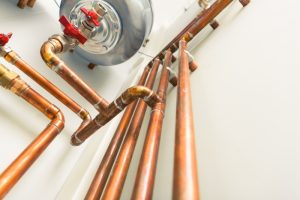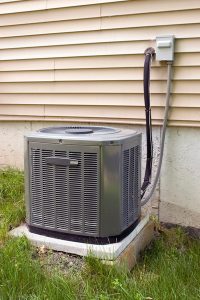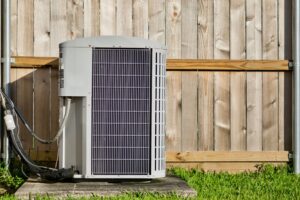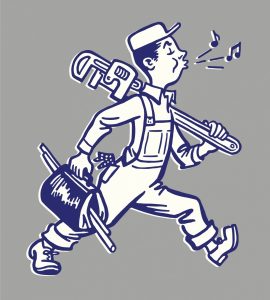Regular maintenance is the backbone of a healthy plumbing system. In Ottawa, homeowners often overlook the importance of checking their sewer lines, leading to unexpected headaches. Just like regular check-ups with your doctor can catch potential health issues early, keeping an eye on your plumbing system can help you avoid costly fixes down the road. It’s amazing what a little early detection can do to keep your home running smoothly.
Sometimes, you might not even realize your home is trying to tell you something is wrong. Subtle signs might be ignored, and then suddenly, you’re facing a more significant problem. Recognizing these early warning signs is key to preventing serious plumbing problems from escalating. Whether it’s a gurgling noise or a slow drain, such clues should never be ignored. Understanding these signals can make all the difference in maintaining your home’s comfort and safety.
Signs of Slow or Clogged Drains
One of the most common indicators that something might be wrong with your sewer line is slow drainage. Imagine you’re filling the bathtub for a relaxing soak, but the water stubbornly takes its time to go down the drain. This isn’t just annoying; it’s a red flag. Slow drains can signal a potential blockage in your sewer line.
To tackle this, it’s crucial to take action early. Here’s what a slow drain might mean:
– Build-up of Debris: Over time, things like soap, hair, and other debris can gather, causing a clog. This buildup restricts water flow, making drainage sluggish.
– Tree Roots Invasion: The roots of nearby trees seek moisture and can penetrate sewer lines, causing blockages. The pressure from growing roots can also break pipes, leading to drainage issues.
– Accumulation of Grease or Fat: The fats and grease from cooking can solidify in pipes, leading to a blockage.
Addressing these signs promptly can prevent major clogs and save you time, money, and stress. Ignoring a slow drain might seem harmless initially, but it often leads to more severe issues that require urgent intervention. Regular inspections can spot these concerns early, allowing for quick solutions and peace of mind.
Unpleasant Odours from Drains
Nothing quite puts a damper on your day like an unpleasant smell wafting up from your drains. Persistent foul odours may indicate problems lurking within your sewer system. It’s not just about the discomfort of a bad smell; it’s about what that smell reveals about your plumbing health. A stinky surprise could mean bigger trouble brews below, and tracing the source can help reveal critical issues in your pipes.
These smells often come from:
– Trapped Gases: When gases from the sewer escape through a crack or blocked pipe, it’s noticeable.
– Drained Waste: Decomposed organic matter can build up, causing unpleasant smells to drift back up.
Before things get out of hand, it’s wise to investigate these smells. They not only create a sour environment but can also pose health hazards. Checking your system with a sewer camera inspection can pinpoint the exact cause, offering the right path forward to fix things safely and efficiently. When the nose becomes unhappy, it’s a sure sign that a professional look into your plumbing could save the day.
Frequent Backups and Overflows
If you find yourself constantly reaching for that plunger or watching the water level rise ominously in your toilet bowl, it might be time for a closer look. Frequent backups and overflows are often more than just minor annoyances; they can signal significant issues within your sewer system. Such problems typically point to a blockage somewhere in the line, restricting the normal flow of waste.
Understanding what might be causing these backups can guide your next steps:
– Foreign Objects: Sometimes, items flushed down the toilet can create blockages. Small toys, wipes, or thick paper products are common culprits.
– Pipe Damage: Damage in the pipes, perhaps due to shifting ground or heavy traffic above, can cause restricted flow or even more severe structural issues.
– Ageing Infrastructure: Older pipes can naturally wear out or corrode, leading to reduced effectiveness and increased likelihood of blockages or breakage.
Addressing backups swiftly can prevent more severe plumbing emergencies and protect your home from potential water damage. Scheduling a sewer camera inspection helps identify these problems exactly, allowing for a targeted solution that keeps everything running smoothly and efficiently.
Water Damage or Mold Growth
Spotting unexpected water damage or finding mold in your home can be alarming. These issues are often signs that something is amiss with your plumbing. When water seeps from malfunctioning sewer lines, it can cause significant structural damage and encourage unhealthy mold growth.
Here’s how water issues may point to sewer problems:
– Hidden Leaks: Water seeping slowly can go unnoticed until it causes visible damage. A leaky sewer line might not be apparent until it affects walls or floors.
– Moisture Buildup: Continuous moisture creates an ideal environment for mold to flourish, posing health risks to your family and pets.
Getting a sewer line inspection is a smart way to diagnose these issues accurately. By addressing leaks or water damage early, you can avoid extensive repairs and ensure a healthier living space.
Unusually Green Patches in the Yard
While a green, healthy lawn is usually a positive sight, patches that seem lush without obvious cause might be warning signs of underground problems. When sewer lines leak, the surrounding soil gets a constant water supply, promoting rapid and concentrated growth in those areas.
If you notice these green patches, consider the following:
– Excess Fertilizer from Leaks: Leaking sewage acts like a natural fertilizer, providing extra nutrients to grass and plants.
– Potential Health Hazards: Aside from the aesthetic concerns, unaddressed leaks can lead to more serious issues, including ground contamination.
The sooner you address unexplained green patches, the better. Catching and repairing leaks prevents further damage and maintains the environmental health of your yard.
Staying Ahead: Keeping Your Home Safe
Recognizing these warning signs and acting on them promptly can save homeowners in Ottawa considerable stress and expense. Sewer camera inspections are invaluable for pinpointing issues with precision, ensuring repairs are done right the first time. By understanding and responding to these hints, you help keep your home safe, functional, and comfortable.
Ensuring regular sewer maintenance not only provides peace of mind but also protects your investment in your Ottawa home. Don’t wait until problems escalate; staying ahead of potential issues means maintaining the quality and safety of your living environment every day.
For peace of mind and a thorough assessment of your home’s plumbing system, consider arranging a sewer camera inspection with The Irish Plumber. This proactive approach not only prevents future headaches but also ensures a safe and comfortable living environment for you and your family. Whether you’re dealing with suspicious sounds, unpleasant smells, frequent backups, or unexpected water damage, a detailed inspection can uncover underlying issues before they become major problems. Always keep your Ottawa home in the best shape by being aware of the signs and acting promptly.
 As we head into late spring, temperatures in the Mid-Atlantic are on the rise—and so is demand for air conditioning.
As we head into late spring, temperatures in the Mid-Atlantic are on the rise—and so is demand for air conditioning.



